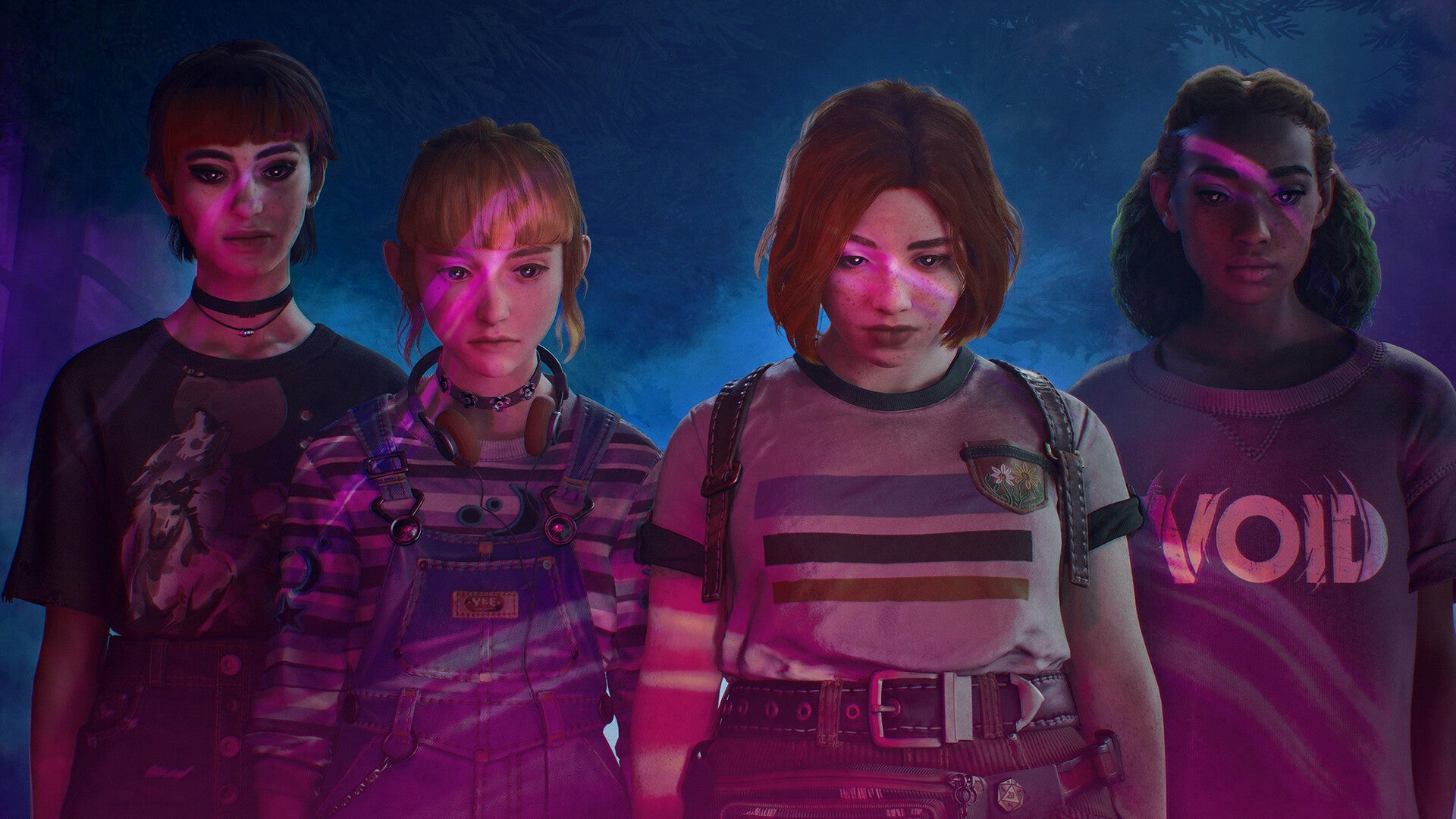This review is based on a screening at the 59th Chicago International Film Festival.
Late Night with the Devil, from Australian writer-director siblings Cameron and Colin Cairnes, has more on its mind than merely conjuring late-October chills. Possibly too much. As a period piece fascinated by American talk shows and demonic possession, it’s eager to show its homework. It takes great pains to capture the funky aesthetic of ’70s TV (people in sideburns! Who smoke on set!) and then saddles this groovy costume party with a cultural zeitgeist that paints the story in a grimmer context. It employs practical gore effects that are so charmingly gross that when it starts dressing them up with weaker digital effects, the results sap the low-budget magic.
The premise has spark: Halloween 1977 has fallen on a sweeps week – that do-or-die period of the broadcast calendar prone to ratings-grabbing stunts – and for Jack Delroy (David Dastmalchian), the would-be king of late night, dwindling audience numbers are scarier than a horde of trick-or-treaters. Something has to be done to save Jack’s soul – er, show.
Late Night with the Devil’s found-footage framework kicks off with a six-minute pseudo-documentary montage in which Michael Ironside narrates Delroy’s rise and seemingly imminent fall. “America in the 1970s: An era of mistrust,” Ironside growls, priming us for the on-air chicanery that beaten-down Delroy will soon resort to. Naturally, shots of Richard Nixon’s resignation make an appearance. To belabor this seamy (silly) mood, footage of various killers such as David Berkowitz, Charles Manson, and Ted Bundy are spliced in. Peppered throughout this sequence, as though what we’ve just seen isn’t heavy-handed enough, are images of social upheaval and, more pertinently, Satanism, the era’s favorite source of irrational panic and, clearly, the film’s big hook. The Cairnes aim to blend the devil with the broken spirit of the ’70s; in their zealousness, they only manage an info dump.
Cut to Jack. He’s TV’s genial Midwestern alternative to Johnny Carson’s metropolitan swagger, but the ratings for his show, “Night Owls,” are in the toilet. In desperation, Jack and his hard-drinking producer, Leo (Josh Quong Tart), gin up sensationalist drivel to vie for audience attention. Jack arm wrestles little people and pits draft dodgers against returning soldiers, a veritable Jerry Springer of his time. Purposefully, his onstage antics echo late-night history, like when Madonna went on David Letterman to let Ol’ Dave have it with a few choice expletives. (There’s also a nod to Burt Reynolds’s Tonight Show water fight with Marc Summers.) These moments make Late Night With the Devil feel more lively and spontaneous – more so than the ensuing 86 minutes, which often confuses dead air for mounting dread.
The bulk of Late Night with the Devil is presented as a master recording of “the live TV event that shocked a nation,” a Hail Mary thrown by Jack on October 31, 1977. The lineup for that night’s show includes psychic Christou (Fayssal Bazzi), magician-turned-skeptic Carmichael Hunt (Ian Bliss), and Dr. June Ross-Mitchell (Laura Gordon), who’s written a book based on her experiences with Lilly (Ingrid Torelli), a young Satanic cult survivor. There’s also the Andy Richter to Jack’s Conan, Gus (Rhys Auteri), the faithful sidekick/announcer who’s more pious than showbiz (or Jack) wants him to be. As the night progresses, guests bicker over the existence of the supernatural and then, perplexingly, civility (or the lack of it, in Charmichael’s case). Strange things begin to stack up. Details concerning Jack’s ambition (and the movie’s lore) simmer offstage. Jack, our host who may be more responsible for the oncoming havoc than his aw-shucks demeanor lets on, is only barely holding the whole show together.
This should sound familiar to well-versed horror nuts: Late Night With the Devil is a goofier riff on Lesley Manning and Stephen Volk’s Ghostwatch, a far more subtle and frightening transmission from the faux-broadcast branch of the found-footage family tree. This comparison would be unfair if The Cairnes weren’t so clearly repackaging its gimmick. Ghostwatch aired on the BBC on Halloween night in 1992, employing real television anchors to give the special an air of legitimacy – to the degree that some viewers believed the ghost story unfolding before their eyes was true. Late Night uses real-life horrors to give it some additional color, but it has more fun dabbling in fantasy. Once the chairs begin to float, the movie has shown its hand. The head of subtlety just spins and spins.
Still, it’s an amusing enough spectacle to watch unravel. Dastmalchian is sharp casting; his passion for regional late-night horror hosts is well documented (he created the Dark Horse Comics series Count Crowley in tribute to them), and his charming peculiarities shimmer beneath the unctuous persona of Jack Delroy. (“Where’s Vincent Price when you need him?” he brays to the crowd.) Bliss is a terrific foil for everyone on stage; he’s such an effective asshole that watching him puff on his cigar – after he makes a show of producing it from thin air – is a riot unto itself. He makes everyone squirm (quite literally at one point), and the movie is all the better for it. Torelli has a presence that is just as eerie as the doomed girl she plays.
But while Late Night with the Devil captures the smoky late-’70s miasma through convincing enough set design, its cinematography is less committed to authenticity. The video effects and color grading capture the generic horror-throwback/video-store aesthetics that overcrowd Tubi. But it’s during the black-and-white backstage sequences that the otherwise sturdy artifice shatters completely. While these scenes reveal crucial story details, it just doesn’t seem likely that Jack would speak so candidly to Leo, June, and Gus with a rolling camera in his face – or two, for that matter, as coverage has clearly been shot for these backstage chats that go well beyond typical “archival” footage. That prickliness to get its point across extends to the dialogue, which is so leaden that it dulls talk TV’s off-the-cuff snap and sounds more like a stage play – though, it should be said, the script would adapt into a great one.
None of this is very frightening, sad to say. And the on/offstage melodrama only has stock characters – the nervy host, the cynical guest, the concerned friend, the stern professional, etc. – to rely on. The performances elevate this material, and even those can vary in quality. But when it plays its fiendish games with its format (hypnotism makes one sequence a lot of fun), and Dastmalchian is given space to work his freaky sorcery, Late Night With the Devil goes from dreary rerun to appointment (phony) television.








